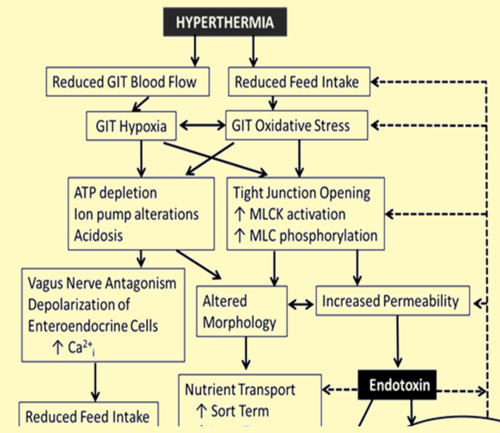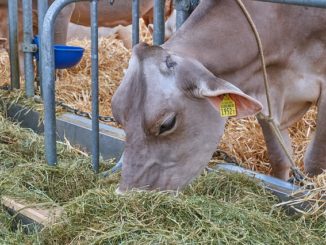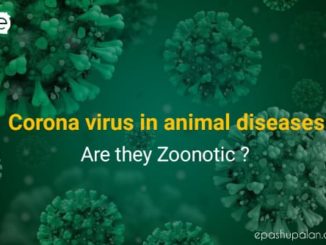When surrounding environmental temperature exceeds body temp, heat is absorbed by body and the body temperature increases from the normal and a stress like condition arises called the heat stress. Exposure to heat results in redistribution of blood to the periphery and compensatory reduction in the blood supply to the gut, which damages cells lining the gut, permitting endotoxin to enter the body. Endotoxin causes tissue damage and an acute–phase immune response. When blood supply resumes, reactive oxygen species and cytokines are released and cause multiple organ injury. Available evidence from livestock species is concordant with this paradigm. The possibility that the integrity of the gut lining is critical to resilience against hyperthermia has great significance for livestock.

Betaine
Scheibler, a German chemist in 1860s isolated betaine from sugar beet (Beta vulgaris). Betaine, naturally present in wheat and sugar beets, is an oxidative product of choline and a trimethylated derivative of glycine i.e. Trimethyl glycine (TMG) (de Zwart et al., 2003)
Food Sources of Betaine
Wheat Bran (1339), Wheat Germ (1293 ), Spinach (645 ), Beef Liver (418),Wheat Bread (201), Sugar beet (11600) mg/100 gm (Refshum et al., 2004)
Betaine as feed in livestock Betaine is a growth promoted nutritional additive widely used in livestock and poultry. Recommended daily doses for dairy cows and calves are 50 g per day, corresponding to about 2 to 2.5 g/kg complete feed for dairy cow (European Food Safety Authority, 2013)
Betaine (N,N,N-trimethylglycine) molecule contains three methyl groups and thus acts as a methyl donor in metabolism and helps in synthesis of cellular macromolecules such as proteins, DNA, RNA and choline (Kidd et al. 1997; Craig, 2004).
Methyl donation is needed for
DNA methylation, Prevention of oxidative stress, Prevention of apoptosis, Energy metabolism, Protein synthesis and Betaine acts as chaperone, as it repairs denatured proteins (Roth et al., 2012) and interacts with molecular chaperones, the heat shock proteins. Zhang et al.,(2014)—evaluated effect of betaine in reducing heat stress in HF cows –observed decrease in rectal temperature and increase in feed intake, milk yield , GSH and SOD activity in cows supplemented with Betaine
Mechanism of action of Betaine
DNA methylation is catalysed by enzymes that transfer methyl groups (methyl-transferases) from the methylating agent S-adenosylmethionine to cytosine. Methyl donors for DNA methylation are mostly derived from dietary methyl groups. The major step in the methylation cycle is the remethylation of homocysteine, a compound which is naturally generated during deamination of the essential amino acid methionine. Despite its natural formation, homocysteine has been linked to inflammation, depression, specific forms of dementia, and various types of vascular disease. The remethylation process that detoxifies homocysteine and converts it back to methionine can occur via either of two pathways. The major pathway involves the enzyme methionine synthase, which requires vitamin B12 as a cofactor, and also depends indirectly on folate and other B vitamins. The minor pathway involves betaine-homocysteine methyltransferase and requires TMG as a cofactor. Betaine is thus involved in the synthesis of many biologically important molecules, and may be even more important in situations where the major pathway for the regeneration of methionine from homocysteine has been compromised by genetic polymorphisms such as mutations in the BHMT gene. Folate-dependent and choline-dependent pathways interact at the point that homocysteine is converted to methionine for derivation of S-adenosylmethionine (J Nutr. 2002; 132: 2333)
Betaine supplementation enhances growth performances, immunity and antioxidant status
Role of betaine on somatotropic axis
Role of betaine in muscle -Protein synthesis :- Betaine it enhances growth. Betaine transfers methyl group to the amino acid homocysteine which is converted to methionine, an important component in the development of muscle protein synthesis(Cholewa et al., 2013). During thermal injury, level of HSP raises up to 15% or more of the total intracellular proteins as against their normal level of 5 % ,among the HSPs, HSP70 shows highest level of expression under stress (Pawar et al., 2014) .Canine kidney cells treated in vitro to accumulate Betaine have 3 times reduction in thermally induced heat shock protein expression and thus Betaine attenuates the induction of intracellular heat shock proteins (Cronjé, 2005)
Betaine-Insulin Interaction
The betaine supplementation may reduce the levels of transmethylate Hcy, a component directly impair insulin signalling by inhibiting insulin receptor substrate- 1 (IRS-1). Insulin is a key anabolic hormone it promotes muscle growth and development, so reduced signalling may be detrimental to muscle gains. Betaine improves insulin sensitivity and help in alleviating heat stress (Dunshea et al., 2008)
Oxidative Stress-free radicals and ROS and decrease in antioxidant defense (Bernabucci et al.,2004). Betaine act on various metabolic pathways generates various non-enzymatic antioxidants (L-cysteine, homocysteine and glutathione). Anti-oxidant properties of Betaine has also been reported in rats (Lu et al. , 2008)
Effect of betaine on the immune system
High betaine supplementation promotes good health for livestock improves leukocyte migration inhibition, cellular immune response and humoral immune response. ↑ blood serum total protein, albumin, globulin and antibody response to Newcastle disease virus in broiler (Alizerei et al.,2012)
Betaine in alleviating heat stress
Due to its osmoprotective features, it has beneficial role in prevention of dehydration during high ambient temperature. It attenuates increased vascular permeability and thus prevents blood plasma water loss during hyperthermia (Matthew et al. 2000). It reduces epidermal dehydration in animals in which sweating occurs. It improves kidney function during hyperthermia and thus increase electrolyte and water retention efficiency (Terui et al. 1980; De Galan and Hoekstra 1995). Betaine functions as an osmolyte to maintain cell function & volume, a methyl donor to increase methionine & decrease homocysteine concentrations (Mitchell et al., 1979). Betaine serve as an organic osmolyte– used by cells for protection against osmotic stress, droughts, high salinity low and high temperature. It accumulates inside the cell and permits water retention and protects cell from dehydration.






Good information